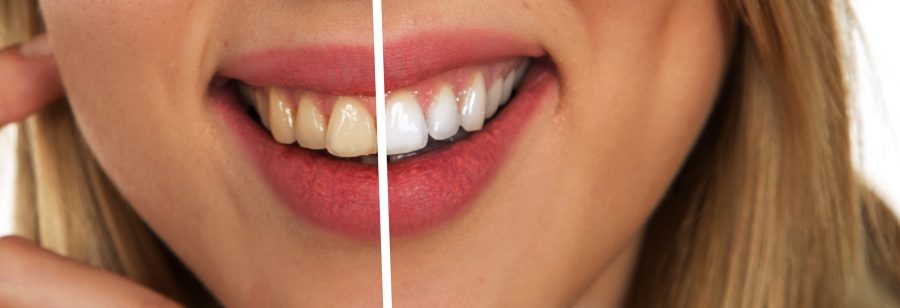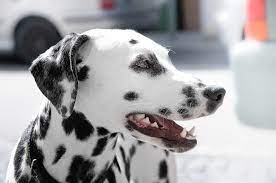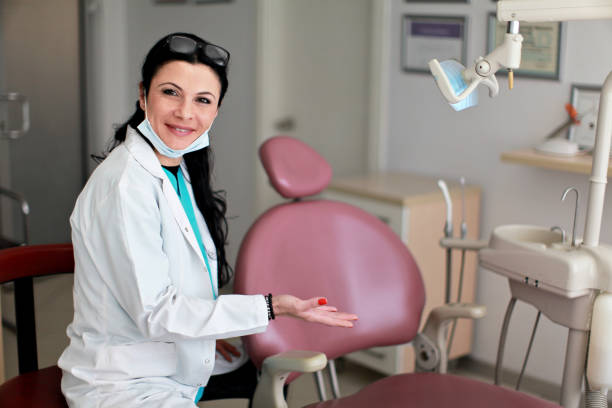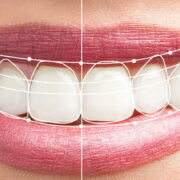Most dog owners are aware that dental health care is an important part of keeping their pup healthy, but many don’t realise the surprising benefits of regular dental cleanings for dogs. Not only does it keep their teeth and gums healthy and free from infection, but it can also improve their overall health and quality of life. A professional dental cleaning can help prevent and treat dental disease, reduce bad breath, and even increase a dog’s lifespan. This routine procedure can also help prevent more serious problems, such as infections and diseases of the heart, liver, and kidneys. With so many benefits, it’s no wonder that regular dental cleanings for dogs are becoming increasingly popular.
What is Dental Cleaning for Dogs?
Dental cleaning for dogs is a professional procedure performed by a veterinarian. During the procedure, the vet will use special tools to remove plaque and tartar from your puppy’s teeth and gums. This is done to prevent dental disease, which can cause a variety of problems in your pet, including pain, infection, and even organ damage. It can also help to reduce bad breath and improve your dog’s overall oral health.
Teeth cleaning for dogs is a procedure that involves the removal of plaque and tartar buildup on a dog’s teeth and gums. It is similar to the dental cleaning that humans receive at the dentist, but it is performed under general anesthesia.

During a dental cleaning for dogs, a veterinarian or veterinary technician will use specialized tools to remove plaque and tartar from the dog’s teeth, both above and below the gumline. They will also examine the dog’s teeth and gums for signs of dental disease or other issues. Oral mouth cleanings are an important part of keeping your pup healthy, but they can also be a bit intimidating. That’s why it’s important to be prepared. Before scheduling an appointment, make sure you understand the procedure, the cost, and how to properly prepare your pup for the cleaning.
Benefits of Regular Dental Cleanings for Dogs
There are many benefits of regular dental cleanings for dogs. Not only can it prevent and treat dental disease, but it can also help to reduce bad breath and improve your pet’s overall health and quality of life. Here are some of the most surprising benefits of dental cleanings for dogs:
Improved oral health: Regular dental cleanings can help to keep your puppy’s teeth and gums healthy and free from infection. This can help to reduce the risk of dental disease, as well as bad breath.

Reduced risk of infection and disease: Plaque and tartar buildup can cause a variety of infections and diseases, including infections of the heart, liver, and kidneys. Regular dental cleanings can help to reduce the risk of these serious problems.
Increased lifespan: Poor oral health can lead to serious complications and even death in some cases. Regular dental cleanings can help to reduce the risk of these problems, and can even increase your pup’s lifespan.
Improved quality of life: Dental disease can cause a lot of pain and discomfort for your pup, which can significantly reduce their quality of life. Regular dental cleanings can help to reduce this pain and discomfort and improve their overall well-being.
How often should a Dog receive a Dental Cleaning?
The frequency of dental cleanings for dogs will depend on the individual needs of your pup. Generally, puppies should receive a dental cleaning every six months, while adult dogs should receive one every one to two years. However, if your pup is showing signs of dental disease, your vet may recommend more frequent cleanings.
Dental health is an important aspect of a dog’s overall health, and regular dental cleanings can help prevent dental problems such as gum disease, tooth decay, and bad breath. The frequency of dental cleanings for dogs depends on several factors, including the dog’s breed, age, diet, and dental health.
Generally, it is recommended that dogs receive a dental cleaning at least once a year, but some dogs may require more frequent cleanings. Dogs with a history of dental problems or those who are prone to dental issues, such as small breeds or those with crowded teeth, may require more frequent cleanings.
Additionally, a dog’s diet can affect their dental health. Dogs who eat mostly soft or canned food may require more frequent cleanings compared to dogs who eat dry food, as soft food can promote the growth of bacteria in the mouth.
Overall, it’s important to consult with your veterinarian to determine the best dental cleaning schedule for your dog based on their individual needs and health status. Your veterinarian can also provide recommendations for at-home dental care, such as regular tooth brushing, to help maintain your dog’s dental health between cleanings.
Signs of Dental Disease in Dogs
It’s important to be aware of the signs of dental disease in dogs so that you can act quickly if your pup is showing any of them. Some of the most common signs to look out for include:
Bad breath: This is one of the most common signs of dental disease in dogs. If your pup has persistent bad breath, it could be a sign of a dental problem.
Yellow or brown teeth: Plaque and tartar buildup can cause your puppy’s teeth to become discoloured. If you notice a yellow or brown tint on your puppy’s teeth, it’s time to schedule a dental cleaning.

Excessive drooling or pawing at the mouth: This can be a sign of pain or discomfort in your puppy’s mouth. If you notice your pup drooling or pawing at its mouth, it could be a sign of dental disease.
Loss of appetite: Dental disease can cause a lot of pain and discomfort in your puppy’s mouth, which can make eating difficult. If you notice that your pup isn’t eating as much as usual, it could be a sign of a dental problem.
How to prepare for a Dental Cleaning?
Before scheduling a dental cleaning for your pup, there are a few things you should do to prepare. The most important step is to make sure your pup is up to date on vaccinations. This will help to ensure that the procedure is as safe and successful as possible. You should also make sure your pup is healthy and free from any medical conditions that could complicate the procedure.
It’s also important to make sure your pup is comfortable with the vet and the procedure itself. If your pup is nervous, you can try taking them for a few practice visits to the vet to get them used to the environment. You should also make sure to inform the vet of any dietary restrictions or medications your pup may be taking.
If any dental issues are identified, such as a cracked tooth or periodontal disease, the veterinarian may recommend additional treatment, such as tooth extraction or antibiotics. After the cleaning, the dog’s teeth will be polished to help prevent future plaque buildup, and the veterinarian may provide recommendations for at-home dental care, such as tooth brushing or dental chews.
Regular dental cleanings for dogs are important to maintain good dental health and prevent dental problems, which can cause pain, infection, and other health issues if left untreated. It’s important to consult with your veterinarian to determine the best dental cleaning schedule for your dog based on their individual needs and health status.
How to brush a Dog’s Teeth?
Brushing your puppy’s teeth is an important part of their dental care routine. Not only does it help to prevent plaque and tartar buildup, but it can also help to reduce bad breath. Start by getting a toothbrush and toothpaste specifically designed for dogs. It’s important to use a soft-bristled brush and toothpaste made specifically for pets, as these are less likely to irritate your pup’s mouth.
To brush your puppy’s teeth, start by gently lifting their lips to expose the teeth and gums. Then, use small circular motions to brush all of their teeth, paying particular attention to the back teeth. Make sure to get all the teeth’ surfaces, including the front, back, and sides. You should also brush your tongue, as this can help to reduce bad breath.
The Importance of Dental Chews and Treats
In addition to brushing your puppy’s teeth, it’s also important to give them dental chews and treats. These can help to reduce plaque and tartar buildup, as well as freshen their breath. However, it’s important to make sure you choose the right chews and treats for your pup. Some may contain ingredients that can be harmful to your pup, so it’s important to read the labels carefully. It’s also important to give your pup the right amount of chews and treats. Too many can lead to weight gain, and too few can be ineffective. Talk to your vet to determine the right amount for your pup.
Cost of a Dental Cleaning
The cost of a dental cleaning for dogs can vary depending on several factors, including the location, the veterinary clinic or hospital, the size of the dog, the condition of the dog’s teeth, and any additional procedures that may be necessary.
On average, a basic dental cleaning for a dog can cost anywhere from $200 to $600 or more, but this can vary significantly depending on the factors mentioned above.
Additional procedures, such as dental x-rays, extractions, or treatment for periodontal disease, can also increase the cost. The cost of these procedures will depend on the specific condition and treatment plan recommended by the veterinarian.
It’s important to note that while the cost of a dental cleaning for dogs may seem high, it is an important part of maintaining your dog’s overall health and preventing more serious dental issues from developing. Some pet insurance policies may also cover the cost of dental cleanings and procedures, so it’s worth checking with your provider to see if this is an option.
What to Expect During a Dental Cleaning
When you arrive for your pup’s dental cleaning, the vet will begin by examining their mouth and taking X-rays. They will then use special tools to remove plaque and tartar from your puppy’s teeth and gums. This can be a bit uncomfortable for your pup, so the vet will use a local anaesthetic to make them more comfortable. Once the cleaning is complete, the vet may recommend additional treatments or procedures, such as a mouth rinse or fluoride treatment. They may also prescribe antibiotics or pain medications if necessary.
Conclusion
Regular dental cleanings for dogs can have many surprising benefits, from improved oral health to increased lifespan. Not only can it help to reduce the risk of dental disease, but it can also help to reduce bad breath and improve your pup’s overall health and quality of life. However, it’s important to be aware of the signs of dental disease and to make sure your pup is up to date on vaccinations before scheduling an appointment. Additionally, brushing your puppy’s teeth regularly and giving them dental chews and treats can help to reduce plaque and tartar buildup and keep their mouth healthy. With so many benefits, it’s no wonder that regular dental cleanings for dogs are becoming increasingly popular.





